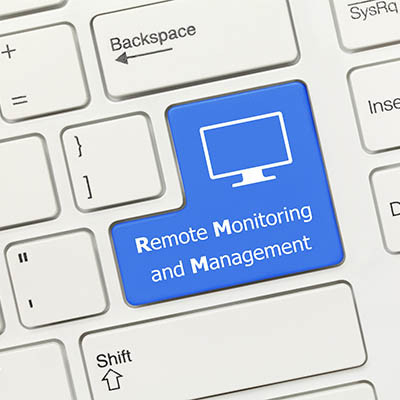JS Business Solutions Blog
Against all odds, remote work has been gradually accepted, but regardless of how your organization does it, it would be imprudent to overlook the obvious cybersecurity risks presented by remote work. Let’s take a look at the essence of zero-trust security and explore why it has evolved into the standard that organizations of all sizes should adhere to.
It’s hard to believe that it’s already been a few years since circumstances… “encouraged”... so many businesses to suddenly adopt work from home policies. As these circumstances have gradually normalized, many businesses have elected to keep these policies in place, either maintaining fully remote operations or shifting to hybrid operations.
However, some notable businesses have taken efforts to roll back remote work capabilities, if not discontinuing them entirely.
Since it was—somewhat by necessity—implemented by many businesses a few years ago, many of these same businesses have been quick to abandon remote and hybrid approaches to work. If you are considering this return, we implore you to reconsider—in fact, we’d urge you to lean into further expanding the capabilities of remote and hybrid workers.
The COVID pandemic forced businesses all over the world to adopt remote work practices, whether they were ready for them or not, and it wound up establishing full-fledged remote and hybrid positions which may never have existed otherwise. However, with these new developments come new threats, and you need to be ready to handle them as they crop up.
Both in-house and remote operations have their places in the work environment, and many companies have opted to combine the two to create a hybrid workplace. While this too has made a world of difference for all kinds of businesses, others have found that it lacks the inclusivity that a modern workplace demands. Let’s take a look at the cause of this.
Remote operations were the norm for some time during the pandemic, but now, hybrid operations have largely taken over fully-remote operations. The unfortunate fact of this change, however, is that your employees in the office are getting more out of meetings. Let’s discuss how you can make meetings more equitable for everyone involved, both remote employees and in-house staff.
While remote operations have somewhat given way to hybrid operations, this does not mean that your employees working remotely are having an easier time—particularly when they are participating in meetings with both in-house and remote participants. Let’s delve into how you can ensure that these meetings remain equitable for everyone involved.
The past few years have seen major shifts in the workforce, and not the kind that employers ever want to see. More people than any other time have willingly left their places of work, with social media hashtags like “#quittingmyjob” and “#quitmyjob” getting hundreds of millions of views. Let’s consider why this is, and what you can do to keep your employees engaged
If the past year has taught us anything, it’s that remote work is something that should not be counted out as a possibility. Employers were forced to make rapid changes to their operations, but for some employees—particularly parents—the shift was both disruptive and frustrating, leading some to question whether they should change careers entirely.
Business communications have seen some significant changes, particularly with recent events being what they have been. Instead of your team members having the opportunity to simply turn to one another in the office, there are now added hoops that they must jump through. Let’s go into how your internal and external communications should adjust to meet these changes.
While reliable technology support has always been important, the sudden and widespread adoption of remote work by so many businesses has made it an essential component for an organization’s success. However, for your team members to have technology that continues to serve them as they do so, it is important that they are able to receive the same support as they would in the office.
People look at their work differently, just as they view their lives differently. The many different perspectives of your staff brings a bit of variance of how they view data security. This isn’t so good for your business as you need to trust them to prioritize the security of your data and infrastructure. Let’s take a look at some of the best practices that you should be training your staff in, which will allow them to protect your data better, and theirs.
Conferencing has played a crucial role for businesses, and never more than in the past year. Unfortunately, this has presented the opportunity for trolls to join in these remote collaboration efforts, interrupting them with inflammatory and vulgar content. Labelled “Zoombombing”, these attacks have led to the implementation of numerous privacy protections and countermeasures… but the question remains: how effectively do these protections defend a business’ efforts?
As a study has revealed, not effectively enough.
With remote work remaining a popular option embraced by many businesses nowadays, it is more important than ever that security is prioritized amongst the employees now operating outside of the office. One facet of doing so is to implement a virtual private network, or a VPN. Let’s go over what a VPN is, and how it works to protect your business’ data.
Collaboration is a critical consideration—especially nowadays, with more people than ever before working remotely. Fortunately, there are plenty of solutions available today that enable the level of communication necessary for effective collaboration to take place. Let’s go over some of the tools your business should embrace to fulfill its needs.
Working from home—especially for an extended period, as many have—can take its toll on anyone. Just think about it: instead of the home being a place of relative sanctuary that your employees can retreat to after the workday is over, the home has become just another place for work to be done. This quite understandably isn’t healthy, so it becomes important that your team members are able to separate their work life from their home life.
With so many people working from home right now, businesses have managed to keep their operations going somewhat successfully by using the remote solutions that are available today. While it is fortunate that today’s technology enables businesses to do so, the importance of cybersecurity cannot be understated as remote work is implemented.
Shadow IT is a big problem in today’s business, but not a lot of people know about it. As powerful as technology can be if it is left unmonitored, it can run into problems. Shadow IT is unmonitored technology because it is brought onto a network without an IT administrator’s knowledge. Today, we talk a little bit about fighting shadow IT and how to get your staff on board.
With the pandemic stretching on for so long, there are a lot of workplaces figuring out ways to reopen and resume operations. Due to today’s technology providing the option for some, many managers and business owners have elected to keep the office shut down and shift to remote operations. Technology is also assisting those who are going back into the workplace. Let’s examine some of the technology that is being used to accomplish workplace processes, in all the different ways it can.






















